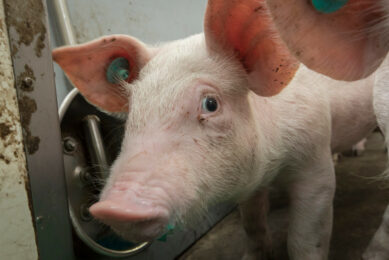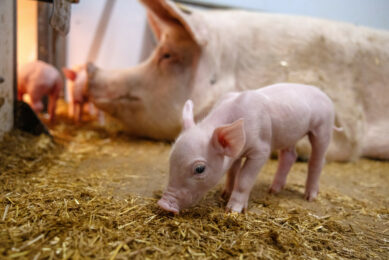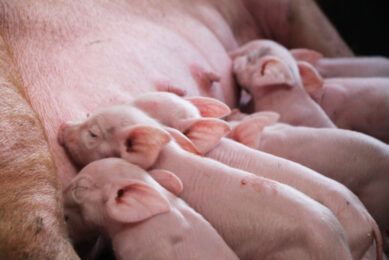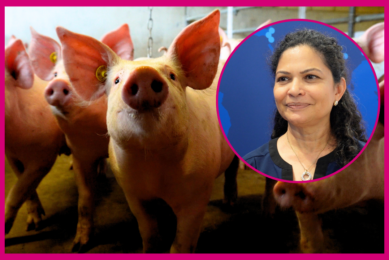Nutritional strategies to mitigate post-weaning challenges in piglets
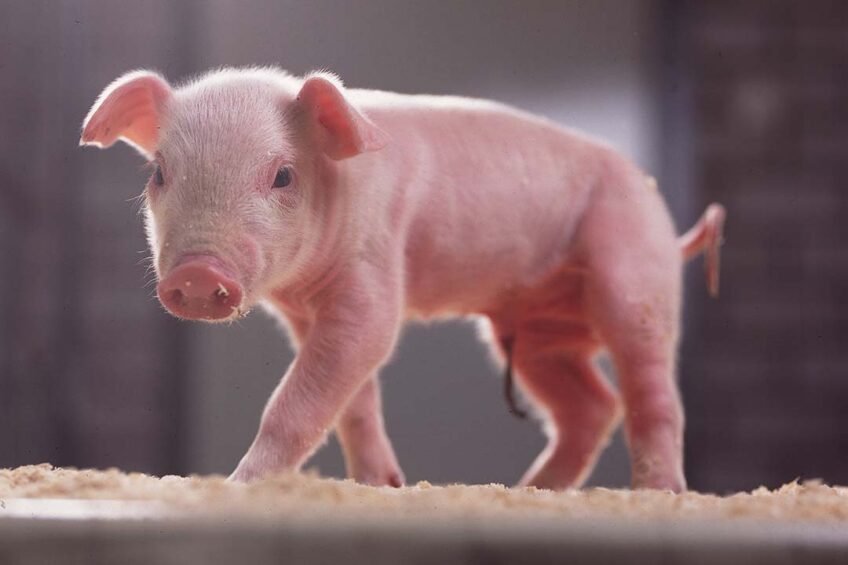
The weaning phase presents significant challenges to pig producers as the health and growth of the piglets are compromised by several stressors. In a recently published study, researchers from University College Dublin explored the benefits of nutritional strategies based on β-glucans from different sources on mitigating postweaning challenges in piglets.
PIG HEALTH SPECIAL 2024 – read all articles
The weaning period involves multiple stressors, such as environmental changes, dietary shifts, and social separation, which can adversely affect the piglet’s digestive health, immune system, growth, and welfare. One of the primary hurdles during weaning is the transition from a milk-based diet to a more complex cereal-based diet; this abrupt dietary change can lead to reduced feed intake, digestive issues, gut inflammation, and nutrient absorption difficulties, resulting in diarrhoea and poor growth. What is also observed during this period is a decrease in beneficial microbes, such as Lactobacillus, alongside an increase in opportunistic pathogens, including Clostridium and E. coli, which is responsible for the development of post-weaning diarrhoea.
To tackle these issues, the researchers highlight the use of natural and innovative nutritional strategies, elaborating on the nutritional and health benefits of utilising β-glucans, derived from different sources including cereals, mushrooms, seaweed, and yeast. Due to the growing focus on the roles of vitamin D and selenium, their study also explored the growth and health benefits of vitamin D and selenium-enriched mushrooms.
β-glucans enhance growth performance
The role of β-glucans in pig nutrition is increasingly recognised for its profound impact on enhancing the immune response and overall health of pigs. These naturally occurring polysaccharides comprise glucose molecules linked by β-glycosidic bonds and display structural diversity that is crucial to their functionality.
In the field of pig nutrition, β-glucans, particularly those derived from yeast, have been associated with improved growth performance in weaned pigs. Yeast and seaweed-derived β-glucans mainly enhance growth by boosting health and disease resistance, while cereal-derived β-glucans improve growth through better gut health and nutrient absorption. Multiple studies have demonstrated that β-glucans sourced from organisms such as Agrobacterium spp. and yeast can positively influence gut microbiota, increasing the abundance of beneficial bacterial taxa, such as Lactobacillus, while reducing harmful species, such as E. coli. Moreover, yeast β-glucans are known for their anti-inflammatory and antioxidant properties, which may provide added resilience against chronic inflammation and oxidative stress in piglets.
Overall, these β-glucans contribute to enhanced growth, intestinal health, and immune function, ultimately resulting in improved growth performance and overall well-being.
Prebiotic benefits of β-glucans
According to the researchers, β-glucans from mushrooms have a 1,3 backbone with 1,6-linked side chains, a structure that has been shown to potentiate immune response through various mechanisms, including the activation of macrophages and other immune cells. Yeast-derived β-glucans, with a higher proportion of 1,3 linkages, have been found to stimulate the immune system, as they activate a wide range of immune cells, including macrophages, T helper cells, and natural killer cells. Thus, one of the main advantages of incorporating algae β-glucans into the diets of piglets lies in their substantial immunomodulatory capabilities. As observed in previous studies, algae-derived β-glucans play a vital role in boosting the immune response of weaned pigs.
Similarly, when laminarin, a low molecular weight β-glucan found in various seaweeds, was included in piglet diets, results showed antibacterial activity through a reduction in the populations of Enterobacteriaceae and attaching-effacing Escherichia coli in the caecum and colon of weaned pigs. Moreover, laminarin exhibits prebiotic activity, as demonstrated by an increase in the populations of beneficial Lactobacillus species in pig colonic and faecal microbiota following supplementation with both crude and highly purified laminarin-rich extracts. Researchers highlight that the quantitative, structural, and functional variability of laminarin can significantly depend on factors such as extraction methodologies, conditions, and the type of seaweed used.
Mushrooms as a source of β-glucans, vitamin D and selenium
Recent studies show that mushroom by-products, primarily composed of mushrooms unsuitable for the consumer market, possess nutrients and bioactive compounds beneficial to pig nutrition and health. The presence of β-glucan polysaccharides is well-noted for their role in immune modulation. Moreover, an array of polyphenols, amino acids such as ergothioneine, and the presence of chitin, terpenoids, vitamin D2, and ergosterol broaden the potential health benefits of mushrooms; these compounds possess antioxidant, antimicrobial, anti-inflammatory, and immunomodulatory effects.
On the other hand, the biofortification of mushrooms with selenium has become an area of great interest due to selenium’s role in pig health. Selenium-enriched mushrooms have been shown to improve pig health by increasing antioxidant capacity, enhancing immune responses, and improving meat quality.
Synergistic benefits of β-glucans and casein hydrolysates
Studies show that casein hydrolysates, which are derived from milk protein casein, are potential alternatives to antibiotic growth promoters in piglet nutrition; they are valued for their high nutritive content and the presence of bioactive peptides. However, one potential issue is that the bioactivity of casein hydrolysates may be compromised in the stomach during digestion. To address this concern, microencapsulation techniques can be employed to protect these bioactive compounds and enhance their bioavailability. Studies have shown that microencapsulation using substances such as yeast β-glucan can preserve the bioactivity of casein hydrolysates in vivo. In post-weaning pigs, the combination of casein hydrolysate and yeast β-glucan was found to improve gut function and health. A similar study showed that maternal supplementation of a casein hydrolysate and yeast β-glucan from late gestation through lactation improved microbial, structural, and inflammatory response in piglets at weaning, offering a promising strategy to alleviate the challenges that occur with early abrupt weaning in commercial pig production.
Long-term health benefits of β-glucans
Besides their benefits on the immune system, β-glucans have promising effects on the growth performance and gut microbiota composition of weaned pigs as they enhance the presence of beneficial bacteria while suppressing pathogenic strains. Moreover, the incorporation of β-glucans into sow diets may impart long-term health benefits to piglets, emphasising the importance of maternal nutrition on offspring development. The researchers concluded that dietary inclusion of β-glucans should carefully consider factors such as source, purity, solubility, synergisms, and molecular mass to ensure maximum efficacy.
Article is based on the original article by John O’Doherty, Alison Dowley, Eadaoin Conway and Torres Sweeney. 2024. Nutritional Strategies to Mitigate Post-Weaning Challenges in Pigs: A Focus on Glucans, Vitamin D, and Selenium. Animals, 14: 13.



